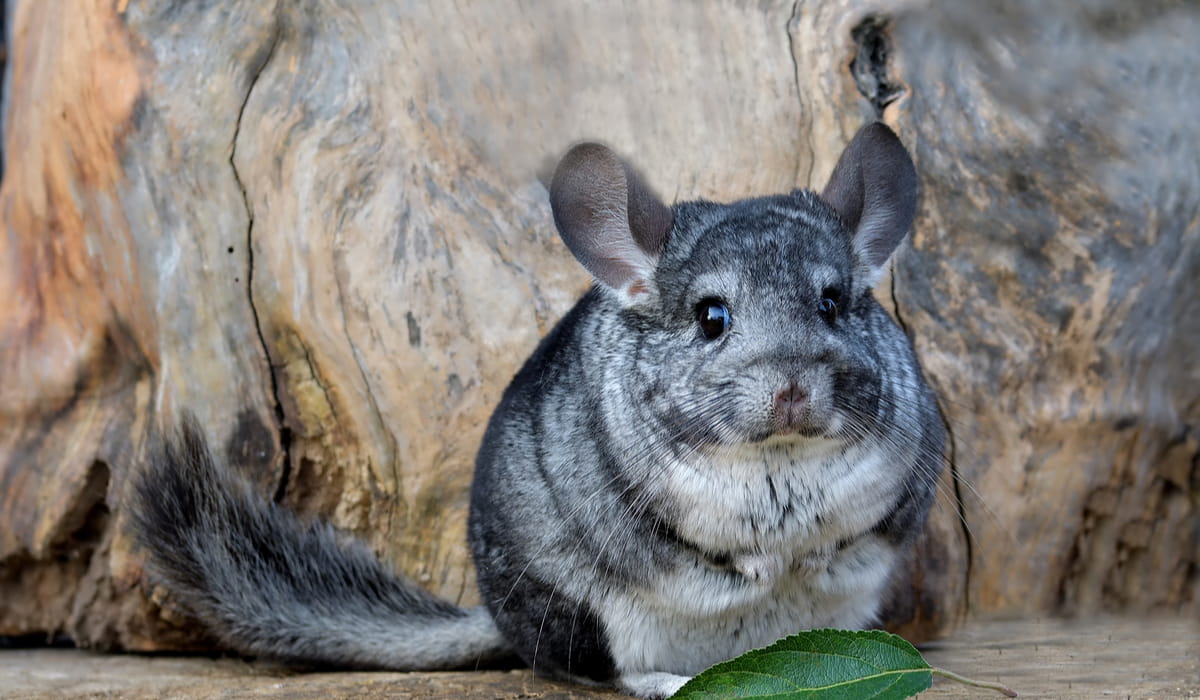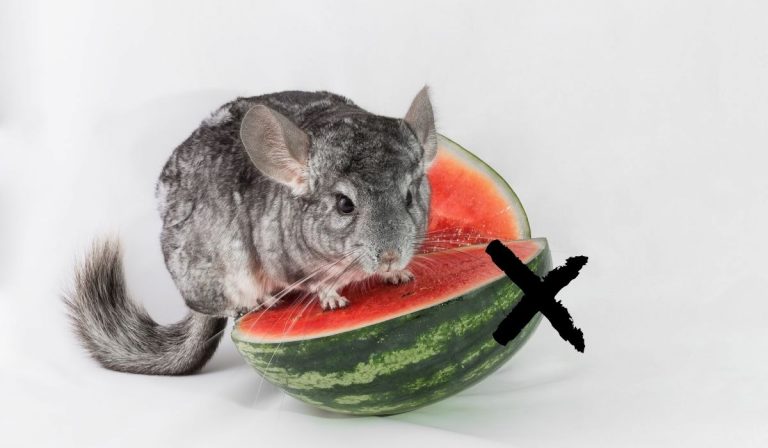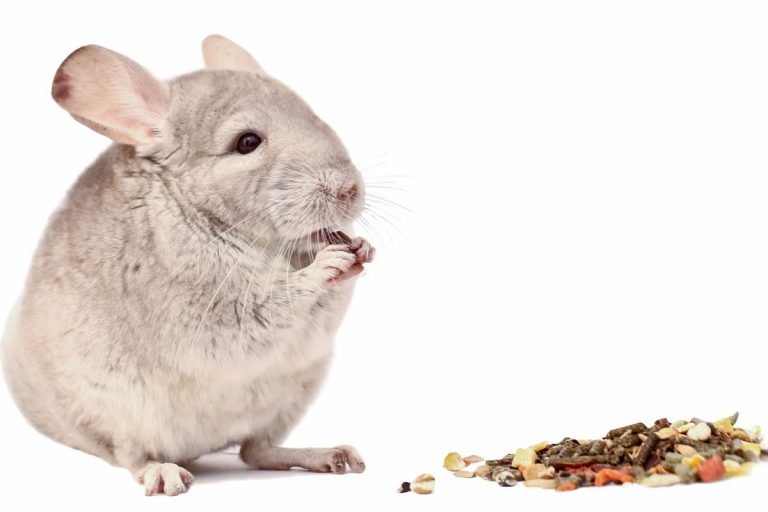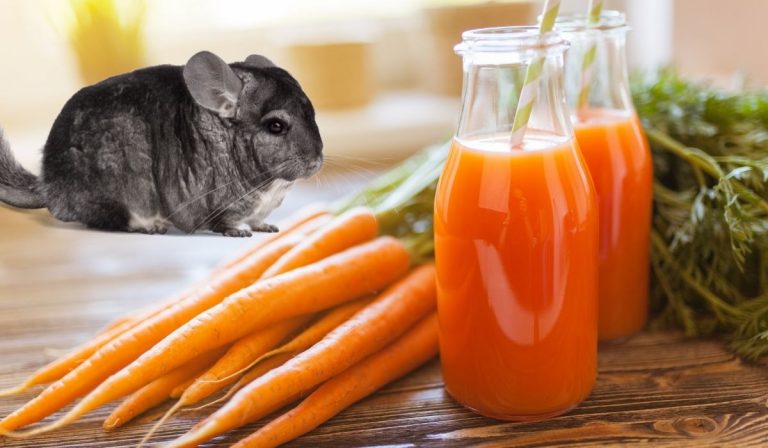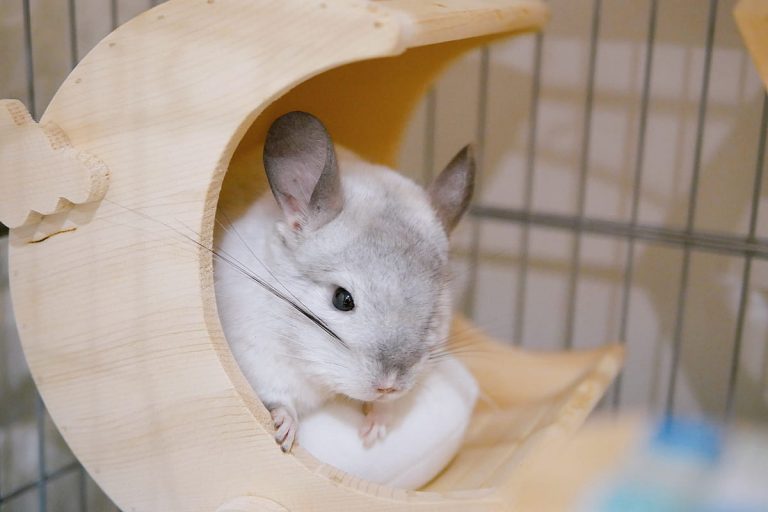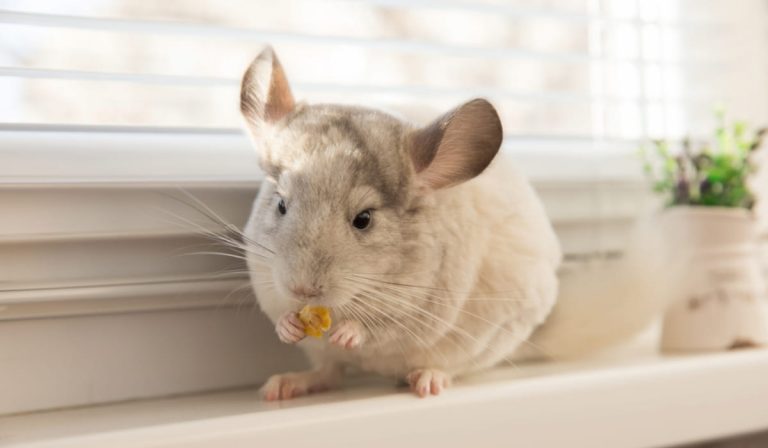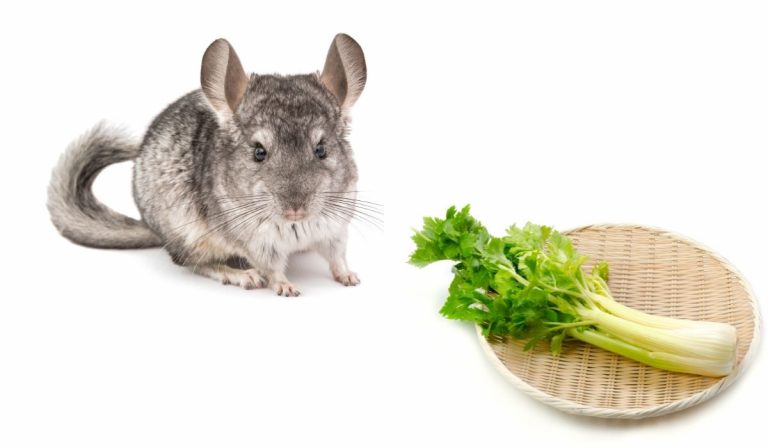Can Chinchillas Get Fat?
Chinchillas can get fat, but this solely depends on what they are fed by their parent. Naturally, chinchillas do not get fat. Although they may look chubby because of their thick fur that makes them look fat.
Out in the wild, chinchillas mostly feed on hay and grasses and a few nibbles they may find. This is not, however, the case with domesticated chinchillas because they have access to more treats, and too much of these could pre-dispose them to many fats, ultimately making them gain weight.
Experienced chinchilla owners often say that it is almost impossible for a chinchilla to gain more weight once it is fully grown. However, if fed an inappropriate diet such as too many treats, the chinchillas can gain weight.
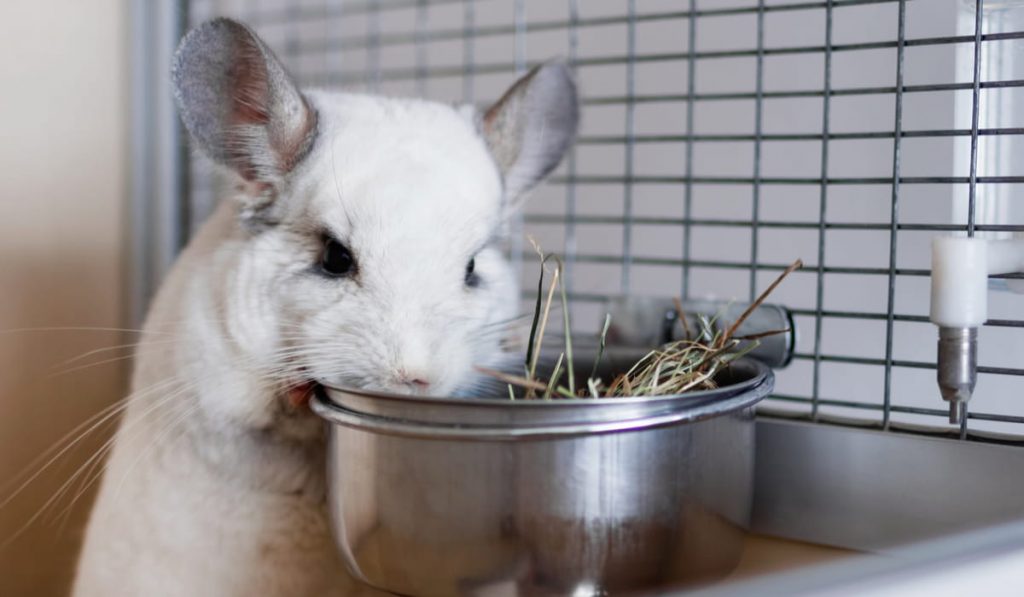
Appropriate diet for chinchillas
A chinchilla’s diet is the most crucial factor for its health and long life. Having reliable information when feeding them is therefore good for the owner to ensure he/she provides the correct nutrition and feeds.
Chinchillas are herbivores who need feeds that are high in fiber and low in fats and proteins. In the wild, most of their primary feeds are roots, leaves, tree barks, alfalfa, berries, and grasses, all with high fiber content.
An average chinchilla diet should consist of:
- 30% fiber
- 35% carbohydrate
- 14-16% protein
- 4% sugar
- 6% minerals
- 3.5% fats and oils
- 10% water
- 14.000 Vitamin A
- 32.400 Vitamin D
- 80 Vitamin E
A different nutritional composition will give your chinchilla problems.
When domesticated, a diet mainly composed of concentrates like pellets is insufficient for your chinchilla. However, a diet of both concentrates (pellets only specific to chinchillas) and roughage, such as Timothy hay, will provide them all their nutritional needs.
Timothy hay is specifically high in fiber and low in fats and proteins, making it almost impossible to gain weight no matter how much they eat.
Many pet owners do not also put into consideration the chinchilla’s sensitive digestive system, and may rather substitute the chinchilla’s diet with many treats and even at times feeds that are meant for other animals like rabbits.
Overeating treats is not good and should be totally discouraged to avoid exposure to health issues and weight gain at an early age.
You should also avoid re-cooked feeds like shredded wheat, puffed wheat, and rolled oats because they can be detrimental to your pet.
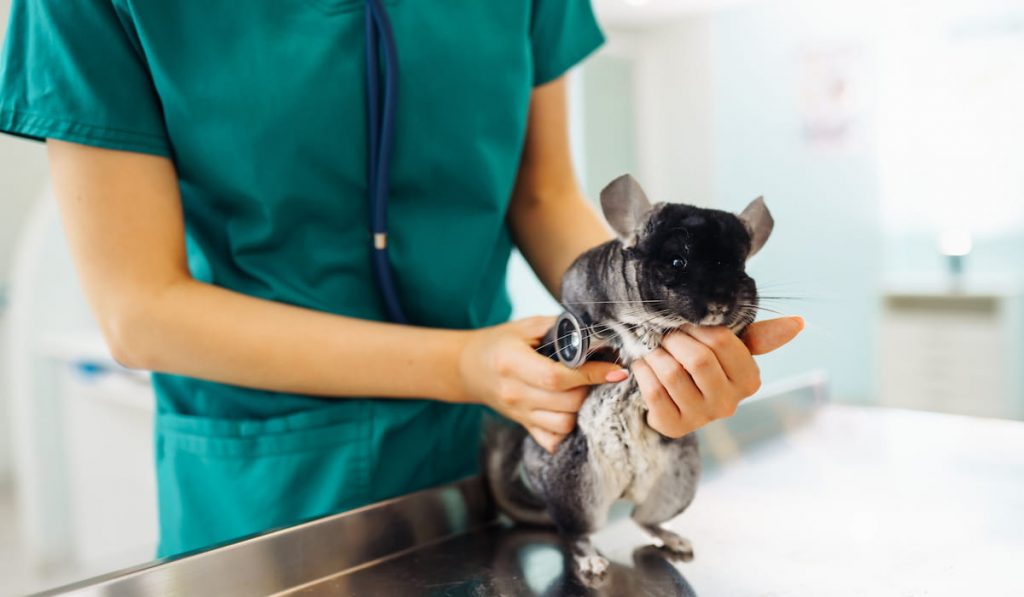
How to tell if a chinchilla is fat
Naturally, chinchillas do not get fat as long as they are given good care and nutrition because being an exotic pet.
Chinchillas are also naturally active and exercise a lot, often burning calories which reduces the chances of being overweight, and being the main feed, hay is also high in fiber yet low in calories. For this, no matter how much your chinchilla eats, it won’t get fat.
However, overweight chinchillas (though rare) exist. It is always good to consult with a vet if you suspect your chinchilla is fat, but for a quick check, the pointers below will help you.
- Chinchilla weight – You can try weighing your chinchilla. Primarily, the chinchilla weight depends on the individual chinchilla’s gender and its type. On average, females have larger bodies than males, therefore weighing more.
On the other hand, short-tailed chinchillas weigh more than long-tailed chinchillas, with the short-tailed weighing about 1.1 – 1.4 kg, and the long-tailed being about 370 – 400 grams, give or take. You should note that the females lean toward the heavier end while the male ones lean toward the lighter end.
An individual chinchilla may be lighter or heavier than others because of its genetic make-up and composition. So being heavy is not necessarily being fat. If unsure about the pet’s weight, consult the doctor.
- Physical appearance – You cannot tell if your chinchilla is overweight by just looking at it, and the fact that your chinchilla looks bigger than it should be is not enough proof that it is overweight.
- Chinchillas often have dense fur and often seem to be overweight, but they are not. However, there is a quick check to see if your pet is overweight through a specific way of holding it.
Carefully pick up your chinchilla and gently place your hands directly under both armpits, with your hand covering its chest. Let the chest off gently, only supporting it with the armpits.
Looking down at it, your chinchilla may have fat rolls sitting on your fingers and you can feel it. This is, however, not a completely reliable method because one can easily confuse folded skin with fat layers. This method doesn’t rely on measured weight.
- Demotivation and lack of exercise – Chinchillas are naturally active animals who need to exercise. Their exercising needs are best met inside their cages through the installation of different jumping layers for their own fun and exercise.
Outside its cage, a chinchilla will always be so excited and often want to run around. However, having a naturally dormant chinchilla can be a bad sign for your pet. Having a still and hardly moving pet can be an issue with weight gain or another problem like stasis.
- Stasis/ gut problems – Also known as gastrointestinal stasis, this is a problem with the pet’s gut, where the normal passage and emptying of the bowel are gradually slowed down till it eventually stops, probably because of a poor diet.
This may not impact weight the way a regular inappropriate diet does, but rather, the accumulation of food in the tract may have a direct impact on the chinchilla’s weight because it is not excreting the way it should.
If you suspect it is stasis disturbing your pet, you should visit a vet as quickly as possible.
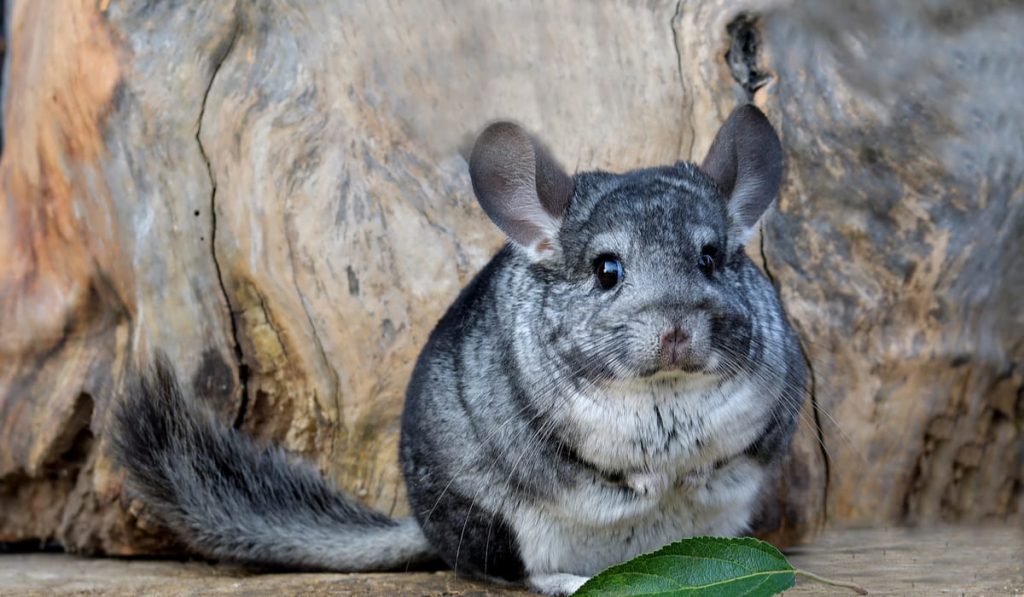
Can a chinchilla overeat?
On a suitable diet, chinchillas cannot overeat because hay is high in fiber and low in fats and proteins, and they can eat much of it without being overweight. Chinchillas can only overeat if given too many treats. Treats are best fed to them rationally and occasionally.
Nuts and seeds, being the common chinchilla treats, have more vitamins, calories, and minerals compared to the chinchilla’s suitable food.
Regularly feeding them will therefore make your chinchilla gain more weight.
Helping a chinchilla avoid being fat /lose weight
To reduce weight, it is often recommended to help your pet either consume fewer calories or burn more calories. This is basically adjusting its diet to the appropriate and giving it a better chance to exercise more.
Giving it the best care and helping it reduce weight, however, is a gradual process that needs patience. To efficiently do this, you should consider the following.
- Talk to a vet – An initial consultation is always good to identify if the pet has an underlying illness that could lead to weight gain. Furthermore, the vet will responsibly give you guidelines to help reduce the pet’s weight.
- Be careful with diet and treats – Offer your pets approved chinchilla diets and treats. Nuts, seeds, and other treats are specifically responsible for weight gain in chinchillas.
Feeding foods designated for other animals like rabbits is also not good, since they may have more fats and are not suitable. Feeding them suitable treats like fresh vegetables in small amounts is better. - Encourage and provide more platforms for exercise – exercise is the best way to burn extra fat out of the body. You can provide the various platforms in and out of their cages through having various jumping levels, appropriate exercise wheels, or a chinchilla saucer, which spins allowing the pet to run around at its top speed while maintaining a natural posture.
It’s however best to let your chinchilla out of its cage for free space to exercise more. - Monitor the weight – To ensure progress, you have to consistently check the pet’s weight. For a simple check, you can use a kitchen scale with a bowl. Noting the figures down, you should first weigh the bowl, then place the chinchilla in the bowl and weigh, then find the difference.
You should also do this even after the pet’s weight is back within the desired range to avoid chances of becoming underweight.
Conclusion
Chinchillas can only be fat when overfed with treats, while it becomes almost practically impossible if the chinchilla only feeds on hay and pellets.
Treats such as nuts and seeds, among others, are basically high in fats, and even though chinchillas may like them, they should only be fed in moderation, and when the chinchillas are given more chances and space to exercise more.
Chinchillas are also not all the same, and some will be larger and heavier than others. If you feel that the chinchilla might be having an issue with its weight, always consult with a vet before taking any step.
Resources
- https://chinchillachronicles.com/chinchilla-nutrition-food-and-diet
- https://lovemychinchilla.com/can-chinchillas-get-fat/
- https://www.crittersaplenty.com/is-your-chinchilla-overweight/
- https://chinchillacorner.com/can-chinchillas-get-fat/
- https://www.hartz.com/a-guide-to-understanding-your-pet-chinchillas-daily-diet-and-nutrition/
- https://chinchillacorner.com/what-do-chinchillas-eat/

